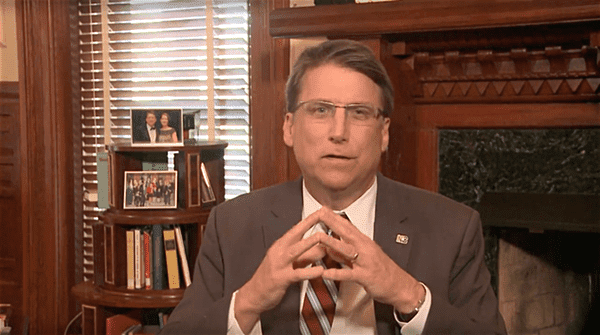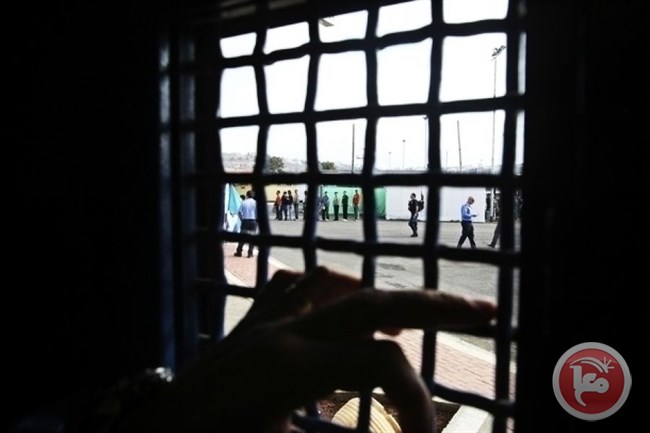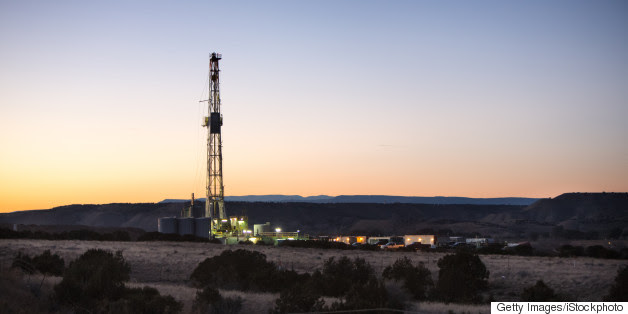Solitary Confinement Out of Control in Florida Prisons
March 29, 2016
Florida
has one of the highest rates of solitary confinement in the nation, at
one eighth of the total state prison population. Florida’s usage of
solitary is extreme not only in its scale, but also its implementation,
with African Americans and individuals with mental illness significantly
overrepresented in isolation. Florida’s prisons and juvenile detention
centers also confine minors erratically and without much oversight. The
state’s solitary confinement units have also played a role in several
high profile deaths in recent years.
This month, a group of Florida civil rights and mental health advocates, religious leaders, and journalists
sent a letter
to the U.S. Deputy Assistant Attorney General for the Department of
Justice Civil Rights Division, asking for investigation into Florida
prisons’ overuse of solitary confinement, their potentially
discriminatory implementation of solitary, and their abuse of
incarcerated individuals.
The letter asks for the DOJ Civil Rights
Division’s Special Litigation Section to investigate whether Florida’s
usage of solitary confinement constitutes a violation of the Civil
Rights of Institutionalized Persons Act (CRIPA), which the authors
believe to be the case. CRIPA is a longstanding federal law that allows
the DOJ to investigate abuse and intervene on behalf of people,
including incarcerated individuals, whose institutional living
situations may make reporting abuse significantly difficult or
uncomfortable.
One of the letter’s chief complaints is that
Florida’s rate of solitary confinement is far too high. The letter cites
Florida Department of Corrections statistics showing that as of this
past September, 12,436 Florida prisoners were being kept in solitary
confinement. This means that one of every eight people in Florida
prisons is kept in solitary, over three times the average rate of
solitary confinement in state prisons across the United States. Solitary
confinement in Florida consists of confinement to an isolated cell for
at least 22 hours a day, often more.
Another complaint raised by
the letter is the racial disparities in the use of solitary confinement.
Black men are overrepresented in solitary confinement by 10 percent, in
respect to the makeup of the general prison population. The racial
disparity is even worse for black women, who are overrepresented in
solitary by 20 percent. The letter also cites overuse of solitary
confinement for incarcerated individuals with mental illness, of whom.
22.5 percent are in isolation.
The letter also raises concerns
over the use of solitary confinement among juveniles in Florida
correctional facilities. There are 138 children under 18 held in
Florida’s adult prisons, one-third of whom are kept in solitary
confinement. When the letters’ authors inquired as to whether special
consideration was being given to protecting these juveniles “from the
physical and psychological burdens of confinement,” Florida’s Department
of Corrections only responded with a statement saying “The Department
is complying with PREA [Prison Rape Elimination Act] standards relative
to those who are 17 and under.”
Additionally, Florida’s Department
of Juvenile Justice operates a number of juvenile-only correctional
facilities that house 2,800 youths. Though these facilities have more
restrictions on the use of solitary confinement than Florida’s adult
prisons, the numbers provided by these facilities showed significant
variation in the rate of solitary usage, with some facilities using
isolation at five times the rate of other juvenile detention centers.
The group’s request for an investigation into Florida’s usage of solitary first stemmed from
the 2012 death of Darren Rainey,
who was locked by corrections officers in a shower scalding him with
180 degree water in Miami’s Dade Correctional Institution. Nearly four
years later,
no charges have been filed
in the death of Rainey, who was being held in a form of solitary
confinement for people with mental illness called a Transitional Care
Unit at the time.
The same group that sent the letter regarding
solitary, initially requested that the Department of Justice investigate
Rainey’s death and the treatment of prisoners with mental illness
across Florida’s prison system. However, according to one of the
letter’s co-authors, Howard Simon, director of the Florida ACLU,
post-Ferguson investigations into police misbehavior had stretched thin
the DOJ’s resources, so the department asked that “the request for
federal resources be more targeted” than the treatment of all Florida
prisoners with mental illness. “They suggested that if we could focus on
a particular problem,” Howard told Solitary Watch “it was more likely
that they would be able to do something.”
The group of advocates
decided to focus on solitary confinement in part because of the TCU
confinement involved in Rainey’s death and staggering rates of Florida’s
use of confinement in general. They were also concerned with a number
of other recent instances of extreme suffering and death that have
occurred in solitary confinement in Florida prisons.
These
incidents include the deaths of Rommell Johnson, a known asthmatic, who
died in solitary confinement after being twice gassed with a chemical
agent; Randall Jordan-Aparo, who died after being gassed three times
despite being ill with a rare blood disorder; and Yalex Tirado, who died
in a solitary confinement cell in juvenile-only detention center where
the sodomizing of prisoners with broomsticks in common, according to
reporting by the
Miami Herald.
The
letter’s authors have also contacted the Florida Department of
Corrections in hopes of preemptive action to reduce solitary confinement
in Florida before a DOJ investigation. Steve Wetstein, of Amnesty
International’s Miami Chapter, another co-author of the letter, called
Florida’s overuse of solitary confinement a “clear violation of civil
rights.” He told Solitary Watch that Amnesty International’s focus on
protecting human rights often calls for a focus on civil rights, like
those of incarcerated people in Florida prisons. “When you want to end
injustice,” he said, “civil liberties and human rights are often just
the same.”
The Department of Justice confirmed that they have received the letter, but declined to comment further.






 Washington and Vermont have joined Seattle, San Francisco, and New
York's ban on employee travel to North Carolina because of its anti-LGBT
bill.
Washington and Vermont have joined Seattle, San Francisco, and New
York's ban on employee travel to North Carolina because of its anti-LGBT
bill.
 President Obama announced Wednesday that he will commute the prison
sentences of 61 inmates currently serving time for drug-related crimes. A
third of the inmates were serving life sentences, White House counsel
Neil Eggleston said. Most of the inmates were nonviolent offenders—many
of whom possessed cocaine, some with firearms violations—and will be
released by the end of July. With the new move, Obama will have commuted
the sentences of 248 inmates during his presidency, more than the past
six presidents combined.
President Obama announced Wednesday that he will commute the prison
sentences of 61 inmates currently serving time for drug-related crimes. A
third of the inmates were serving life sentences, White House counsel
Neil Eggleston said. Most of the inmates were nonviolent offenders—many
of whom possessed cocaine, some with firearms violations—and will be
released by the end of July. With the new move, Obama will have commuted
the sentences of 248 inmates during his presidency, more than the past
six presidents combined.

 During a CNN town-hall forum
During a CNN town-hall forum  Sen. Patrick Leahy (D-VT) and several House members asked the U.S. State
Department last month to look into claims that Israel’s security forces
have committed human-rights violations. The
Sen. Patrick Leahy (D-VT) and several House members asked the U.S. State
Department last month to look into claims that Israel’s security forces
have committed human-rights violations. The  Now that the FBI says it has hacked into an iPhone used by one of the
San Bernardino shooters, Apple wants the Bureau to reveal how it did it.
According to the Los Angeles Times, the tech giant’s attorneys are
researching legal tactics to compel the government to hand over details
of its hack—information the company deems important for understanding
flaws in their product and for protecting consumer privacy. It remains
unclear whether the FBI’s hack would work on other iPhones, and a Times
law-enforcement source said its applications are limited.
Now that the FBI says it has hacked into an iPhone used by one of the
San Bernardino shooters, Apple wants the Bureau to reveal how it did it.
According to the Los Angeles Times, the tech giant’s attorneys are
researching legal tactics to compel the government to hand over details
of its hack—information the company deems important for understanding
flaws in their product and for protecting consumer privacy. It remains
unclear whether the FBI’s hack would work on other iPhones, and a Times
law-enforcement source said its applications are limited.
 In the weeks before the city of Flint began getting its water from the
Flint River in April 2014, Michigan officials were offered—and passed
on—a corrosion-control plan, according to an AP report. “You don’t need
to monitor phosphate because you’re not required to add it,” Michigan
Department of Environmental Quality representative Mike Prysby is said
to have told Mike Glasgow, the city plant’s lab supervisor at the time.
Phosphate normally would have been added to prevent corrosion in lead
pipes. Glasgow said he was surprised by those instructions, as treating
drinking water with anti-corrosive chemicals is standard practice. In an
interview with the AP, Glasgow said he later realized that exchange was
a fateful moment. “I did have some concerns and misgivings at
first,” he later said. “But unfortunately, now that I look back, I
relied on engineers and the state regulators to kind of direct the
decision. I looked at them as having more knowledge than myself.”
Lee-Anne Walters, who has helped bring official attention to the high
lead levels after they were discovered at her own home, told reporters
that hearing about those instructions made her “nauseous.” She added,
“That one meeting was the difference between this city being poisoned
and not being poisoned.”
In the weeks before the city of Flint began getting its water from the
Flint River in April 2014, Michigan officials were offered—and passed
on—a corrosion-control plan, according to an AP report. “You don’t need
to monitor phosphate because you’re not required to add it,” Michigan
Department of Environmental Quality representative Mike Prysby is said
to have told Mike Glasgow, the city plant’s lab supervisor at the time.
Phosphate normally would have been added to prevent corrosion in lead
pipes. Glasgow said he was surprised by those instructions, as treating
drinking water with anti-corrosive chemicals is standard practice. In an
interview with the AP, Glasgow said he later realized that exchange was
a fateful moment. “I did have some concerns and misgivings at
first,” he later said. “But unfortunately, now that I look back, I
relied on engineers and the state regulators to kind of direct the
decision. I looked at them as having more knowledge than myself.”
Lee-Anne Walters, who has helped bring official attention to the high
lead levels after they were discovered at her own home, told reporters
that hearing about those instructions made her “nauseous.” She added,
“That one meeting was the difference between this city being poisoned
and not being poisoned.”






 John Bel Edwards says he will soon repeal Bobby Jindal's Marriage and Conscience Order, which allows for antigay discrimination.
John Bel Edwards says he will soon repeal Bobby Jindal's Marriage and Conscience Order, which allows for antigay discrimination.
 Roy Cooper issued a scathing critique of North Carolina’s transphobic
law in announcing that his office will not defend House Bill 2 in
court.
Roy Cooper issued a scathing critique of North Carolina’s transphobic
law in announcing that his office will not defend House Bill 2 in
court.

 c2
c2












